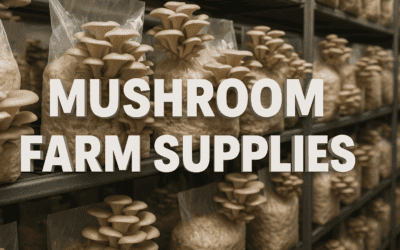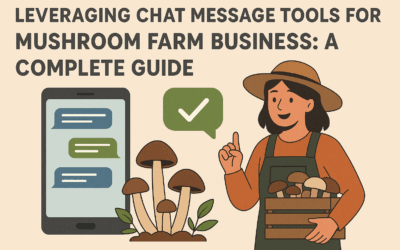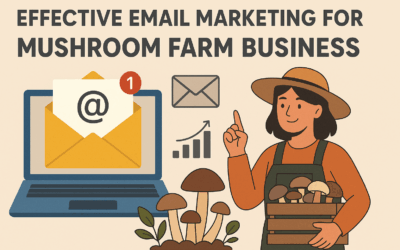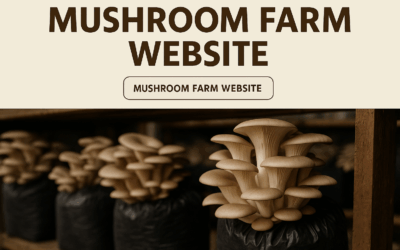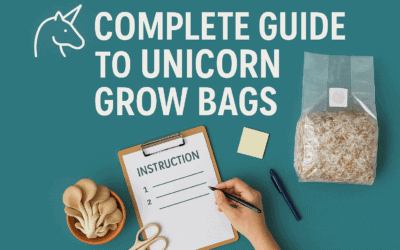INCUBATING BAGS
- Clean around and inside the incubation house using a broom. Always inspect for cleanliness before entering with new spawn bags.
- After inoculation, transfer substrate bags to mushroom incubation house.
- Place bags on shelves for incubation.
- Incubation.
Bags can be placed horizontally or vertically, which takes more space.
Note: At the beginning, little ventilation and light should be allowed. After about 10 days, there ventilation should regulate the desired temperature. After 20 – 25 days, area should be well ventilated and more light can be let in for constant monitoring.
- Visually check mycelium on a daily basis looking for abnormal mycelium (such as black spots, green spots, brown spots, orange or red spots, etc….).
Try to find out the causes of abnormal mycelium (PEST, DISEASE).
- Move bags to fruiting body area (or prepare for fruiting).
- Separate contaminated bags and pasteurize again
or
separate partially contaminated bags and open them
or
tear the plastic bags off and reuse sawdust
or
ferment substrate as compost for gardening.
(See waste management).
- Observe and collect data.
Take notes before drawing conclusions.
Thor Bagger Keeps Getting Better
The Thor Bagger just keeps getting better. Every batch seems to bring a new tweak, a new something that helps mushroom farms and farmers. A new batch of Thor Baggers are ready to ship and in stock. Today one of the amazing improvements we will be talking about is the...
Mushroom Farm Supplies
The Best Mushroom Farm Supplies for Successful Growth Key Highlights Starting your mushroom farm requires the right mushroom farm supplies for success. High-quality substrates and grains are the foundation of healthy mushroom cultivation. Choosing cost-effective,...
Leveraging Chat Message Tools for Your Mushroom Farm Business: A Complete Guide
Leveraging Chat Message Tools. In the evolving landscape of digital marketing, chat message tools and chatbots have emerged as one of the most powerful yet often overlooked marketing channels available to mushroom farmers. With over 80% open rates—the highest...
Effective Email Marketing for Your Mushroom Farm Business: A Complete Guide
Effective Email marketing remains one of the most powerful yet underutilized marketing tools available to mushroom farmers. When done correctly, email marketing can generate up to $40 in return for every dollar spent, making it one of the highest ROI marketing...
How to Use Video Shorts to Grow Your Mushroom Farming Business Online
In today's fast-paced digital world, mushroom farmers need to think beyond traditional marketing methods to reach their ideal customers. Video shorts are a great low cost option. While farmers markets and word-of-mouth referrals remain important, the power of social...
Getting the Most Out of Your Business or Farm Website A Complete Guide for Mushroom Farmers
Your website isn't just a digital business card anymore—it's your most powerful marketing tool, primary sales platform, and often the first impression potential customers have of your farm. This comprehensive guide will show you how to transform your website from a...
The Complete Guide to Unicorn Grow Bags: Why Professional Mushroom Farmers Choose American-Made Quality
For an in-depth discussion about Unicorn Grow Bags, check out our latest Mushroom Farming Podcast episode where host Monica sits down with online marketing expert Harry Warrick to explore everything you need to know about selecting and using these industry-standard...
Mushroom Farm Websites
Why Your Mushroom Farm Needs a Website The Complete Guide to Digital Marketing SuccessListen to our new mushroom farming podcast about mushroom farm websites. In today's digital marketplace, having a strong online presence isn't just an advantage for mushroom...
Mushroom Farming Podcast Ep 3 YouTube Channel
Why Every Mushroom Farm Needs a YouTube Channel: The Second-Most Powerful Search Engine You're Ignoring Based on Episode 3 of The Mushroom Farming Podcast Every Mushroom Farm needs a YouTube Channel. Your mushroom farm has a Google Business Profile. You've optimized...


